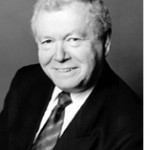By Rabbi Dow Marmur
 JERUSALEM — The same day as the Knesset decided to investigate left-leaning NGOs, an important conference took place in Jerusalem on democracy in Israel. Its formal purpose was to honour Yaron Ezrahi, like many of his colleagues and students who participated, a distinguished Israeli political scientist with an international reputation and an impressive record of service to the State of Israel.
JERUSALEM — The same day as the Knesset decided to investigate left-leaning NGOs, an important conference took place in Jerusalem on democracy in Israel. Its formal purpose was to honour Yaron Ezrahi, like many of his colleagues and students who participated, a distinguished Israeli political scientist with an international reputation and an impressive record of service to the State of Israel.
As soon as Ezrahi took the floor the morning the Knesset decision hit the media, he said that he was now “on the verge of civil disobedience.” With Avigdor Lieberman, the moving spirit behind the Knesset vote, in mind he described the measure as the work of a combination of Putin and McCarthy.
These sentiments were echoed by most of the two dozen speakers. The reaction in many progressive quarters against the proposed measure had been swift and biting. The particular emphasis at the conference was whether, and to what extent, it’s still legitimate to describe Israel as a democratic state. It’s an unnerving and alarming question.
One of the participants, a professor at Tel Aviv University, suggested that the next target of what he termed “Liebermania” would be universities, probably through the subterfuge of budget cuts, particularly in the humanities where many critics of the present Israeli political establishment are teaching. Another speaker added the Supreme Court as a possible early target. Both institutions are frequent subjects of right-wing rants.
A professor who has had a distinguished career as a public servant stated that there’s a climate of anti-intellectualism in the land that repeats the reactionary mantra that “the academics are using public money for subversive activities.”
There’re many causes for this attitude, by no means all of them unique to Israel. The domination of economic thinking – Anthony Grafton was said to describe economics as “the astrology of our age” – was seen as a principal reason for the decline of humanistic education in the West. Institutions were looking for “value for money” whatever the cost to truth and irrespective of the long-term consequences for society.
In Israel the situation is aggravated by the occupation and the mentality it fosters. Under cover of security and with slogans about patriotism, criticism is branded as anti-Israel. Thereby, according to a kippa-wearing philosophy professor, the politicians are betraying not only fundamental Jewish values but even Israel’s Declaration of Independence. Democracy is about minority rights. When minorities such as the Arabs in Israel are identified as the enemy within, democracy is at great risk.
However, despite compelling grounds for pessimism, there was also a spirit of defiance in the air. Ezrahi summed up much of it when he spoke of optimism as a working hypothesis, a formula for Israelis who refuse to be paralyzed by inaction and cynicism. It’s “a necessary fiction,” he added. Many still hope that it can become fact.
I wish communal leaders in the Diaspora, who normally only view Israel through the skewed spectrum of well choreographed “missions,” had been there. They would have seen how committed Israelis who have contributed so much, and continue to do so, to the body and soul of Israel want to see its future and why they’re determined to prevent the present political constellation from wrecking it. The “missionaries” might have been inhibited from describing, as some do, critics of Israel as self-hating Jews.
*
Rabbi Marmur is spiritual leader emeritus of Holy Blossom Temple in Toronto. He now divides his year between Canada and Israel